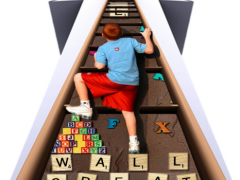The Magic Ladder is a system of tools (free to schools and families) that has the potential to fundamentally improve the learning trajectories of more than half of the children in the U.S.


The Magic Ladder is a system of tools (free to schools and families) that has the potential to fundamentally improve the learning trajectories of more than half of the children in the U.S.
What can you say about yourself that is completely unaffected by learning? Please share your thoughts!
Buying the ‘right’ program and training teachers to use it is not only insufficient, it misorients a school system’s learning.
The most cost-optimal, high ROI, way to improve our schools is to focus on upgrading the mental models through which educators understand and experience learning and understand their mission and purpose as educators.
Pedagogically-strategically, leading learners into confusion means we can meet them in the confusion – we can arrange to be together in the confusion. For both their learning and ours, feedback, from their experience of confusion, is the best possible source of intelligence from which to tune/improve instructional design.
Albert Einstein is often quoted as having said that “Common sense is the collection of prejudices acquired by age eighteen.” What does Einstein mean by using the word ‘acquired’ if not ‘obtained through learning’? Some kind of some machine-like or equally unconscious magical process of internalizing or possessing? Robotically/animalistically choiceless imbibement? Magically/spiritually bestowed? What else could ‘acquire’ mean? In the context […]
